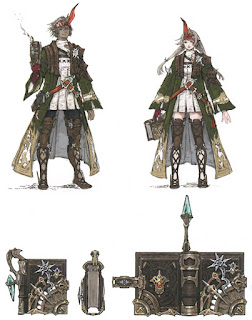A super-pared down 5e-ish thing for Flowerland/Weird Florida. Checks are the typical 1d20+ability score mod+proficiency bonus (if applicable), but classes are more thematically defined packages of proficiencies instead of discrete lists of skills and abilities. Magic is an unreliable accretion of superstitions rather than a very formalized list of abilities, and HP is a small, easy come/easy go buffer between mobility and death. All of this should fit the mood better than the more high fantasy feel of rules as written 5e D&D.
- You can recover EP equal to your hazard die by resting an exploration turn (triggers an encounter check). Each time you rest, your max EP reduces by 1. Eating a ration lets you recover EP without losing any points from your maximum.You can’t take a rest in situations that are draining your EP.
- You recover all of your EP, and you max EP returns to normal, when you take a long rest in a safe place.
- You gain +1 max EP when you level up.
CLASS/BACKGROUND/PROFICIENCY
Your proficiency bonus is +2, and increases by +1 every 4th level. Add your proficiency bonus to tasks your class is good at. The listed die value is your Hazard Die, which determines how much EP you can recover when you rest and how much your weapon attacks deal.
- Cacique [1d6] bullshitting, winning contests, brawling, barking orders, making friends/rivals, etc
- Warrior [1d8] fighting, climbing, swimming, jumping, athletics, etc
- Thief [1d6] picking locks, picking pockets, sneaking, climbing, etc
- Cleric [1d4] performing apotropaic rituals, speaking with authority, praying to spirits, etc
- Witch: [1d4] performing dark rituals, inuiting, animal handling, bargain with spirits, etc
- Hunter: [1d8] ambushing, marksmanship, tracking, naturalism, hiding, etc
- Scholar: [1d6] knowing languages, history, teratology, medicine, etc
- Diva/Adonis: [1d6] dancing, singing, seducing, conversing, distracting, etc
EQUIPMENT AND INVENTORY You start with 3d6×10 dollars. $1 = 1 sp. Buy stuff off of the LotFP equipment list.
Basic ability score checks. Pick one saving throw; you can add your proficiency bonus to it.
Anything that we would recognize as a spell from D&D is far beyond the capability of humans, and generally requires the intercession of a god or demon. Rituals are slower and quieter and subtler, but they are also powerful rules the supernatural world must abide by. Anyone can try to perform a ritual, but people who spend their time close to the supernatural (witches and clerics) are better at them.
Players do not get to see the list of rituals. They discover rituals as rewards, by accident, in books, through rumors, by joining factions. Some are common and most people know about, some are kept secret by powerful organizations. Players will be part of an adventuring Company that will help explain why a new crop of characters might know a bunch of weird rituals after the last group got a TPK.
- [simple] rituals are easy to do. You just need the right component and the right action, like throwing salt on a monster or chanting a certain phrase. Some simple rituals people perform on accident, and this can be dangerous.
- [complex] rituals are hard. They require a lot of practice and knowledge. Making a talisman, reciting a long passage of holy writ, or inscribing a pentagram just right are all complex rituals. They take a month to learn from a tutor or a text. Complex rituals are easy to perform incorrectly, and this can be dangerous.
- [apotropaic] rituals are the rites clerics use to drive back the supernatural and defend humanity. When they require a check, use WIS. When they require a saving throw, the DC is 8+WIS mod (+proficiency bonus if ritual caster is a cleric)
- [dark] rituals are the rites witches use to have their way with the world. When they require a check, use CHA. When they require a saving throw, the DC is 8+CHA mod (+proficiency bonus if ritual caster is a witch). These rituals are often illegal.
- Players can perform impromptu rituals if they make sense. If someone is bitten on the arm by a werewolf and the cleric makes a rosary tourniquet, it is ritually potent enough to work even though it’s not listed below. These might have high DCs, or the victim might get advantage on the saving throw.
purity rite [apotropaic] [simple] Cast salt on an impure creature (devils, demons, undead, fey, etc). They must make a CHA saving throw or flee for a turn.
warding rite [apotropaic] [simple] Pour salt in a circle around you. Impure creatures must make a CHA saving throw to cross it. Lasts until disturbed or you leave the circle.
nazar [apotropaic] [complex] DC 14 Spend a long rest and 10 gp making a blue eye bead. Anyone who carries it will have advantage on saving throws versus curses. It cracks the first time its bearer is the target of a curse, whether or not they succeed the saving throw. If a would-be creator fails a check to make a nazar, all nazars they have already made lose their power.
casket rite [apotropaic] [simple] Seal a coffin with silver nails. If the interred has the will and ability to rise as a restless corpse, they must make a CHA saving throw to succeed and will not be able to try again if they fail. If a witch is trying to raise them, they must make a CHA saving throw before they can attempt it, and cannot try again if they fail.
revenant rite [dark] Bury someone with a smoldering piece of cypress charcoal on their chest, and they will return as a restless corpse. If they don’t want to come back, they cane make a WIS saving throw.
ill rite [dark] [simple] Cast grave dirt on a human as you whisper a cursed syllable. They must make a WIS saving throw or suffer a wasting illness, losing 1 EP a day until they die.
rite of calling [dark] [apotropaic] [simple] Summon a corpse by calling its name at night at the edge of the woods, the mouth of a cave, the bank of a river, or the shore of a lakeThey may or may not be friendly, and if they don’t want to come they may make a CHA saving throw to avoid the summons.
red ribbon rite [dark] [simple] tie a red ribbon to a bound or incapacitated spirit (fiend, fey, elemental, undead, celestial). It must make a CHA saving throw or consider you its master. It can remake the saving throw every time your orders humiliate it, place it in danger, or require it to violate its nature.
shrine rite [dark] [apotropaic] [complex] spend a turn building an impromptu shrine from ritual stones to a spirit (fiend, fey, elemental, undead, celestial) to communicate with it directly. You can ask it to cast a spell, perform a task, guard you, reveal a secret, etc. It may or may not be friendly. Each spirit has its own shrine rite, and they must be learned separately. Ritual stones may be reused.




















